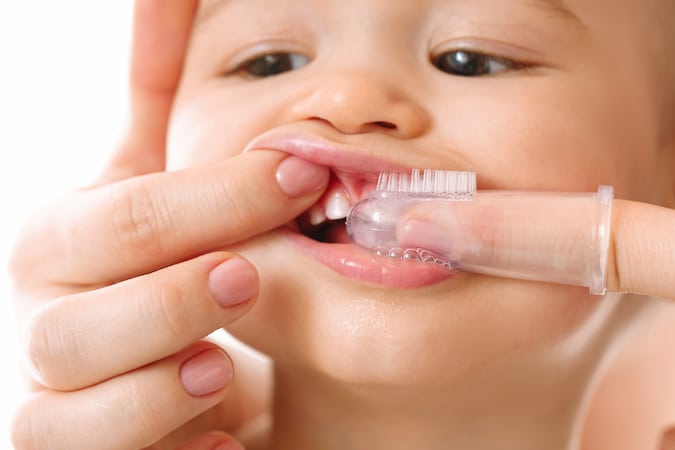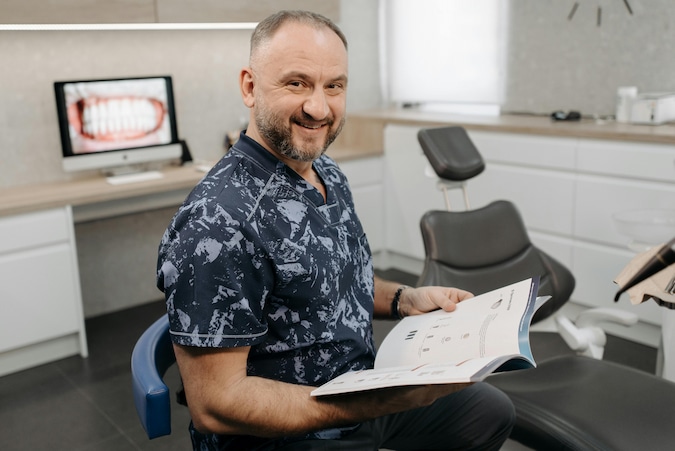
Baby Teeth Matter: Their Role and How to Care for Them

Baby teeth play a crucial role in a child’s development, aiding in speech, chewing, and jaw structure formation. Proper care for these primary teeth sets the foundation for healthy permanent teeth.
Baby teeth, also called primary teeth, may seem temporary, but their impact is lasting. They help children eat and speak properly, support facial structure, and guide permanent teeth into position. Early dental care and good habits are vital to prevent future issues. SelfGood offers resources on health and dental insurance that can support your family in managing these critical aspects of oral health. This guide will show why baby teeth matter and how to care for them effectively.
Key Takeaways:
- Baby teeth support speech development and jaw structure.
- They act as placeholders for permanent teeth.
- Early dental care prevents decay and future alignment problems.
- Establishing good habits early sets children up for lifelong oral health.
The Importance of Baby Teeth

Baby teeth are more than just placeholders; they contribute to key developmental processes. Ignoring them can lead to lasting oral health problems.
Speech Development
Primary teeth are crucial for learning speech. Teeth help shape the sounds needed for clear communication. Without healthy baby teeth, speech development may be hindered, making it challenging for children to articulate words correctly.
Jaw and Facial Structure
Baby teeth support the structure of a child’s jaw and facial muscles. They stimulate jawbone growth, ensuring the proper development of the face. If baby teeth are lost prematurely, the jaw may grow improperly, affecting facial symmetry and function.
Proper Nutrition and Digestion
Healthy baby teeth allow for effective chewing, which is necessary for digestion and nutrient absorption. When decay causes pain or difficulty in chewing, children may avoid certain foods, leading to poor nutrition. Ensuring baby teeth are cavity-free helps maintain overall health.
The Link Between Baby Teeth and Permanent Teeth
Baby teeth are placeholders for permanent teeth, helping guide them into the right position. Losing these teeth too early, whether due to decay or injury, can lead to misalignment and crowding. This can require orthodontic treatments later.
Additionally, infections in baby teeth can affect the underlying permanent teeth, causing defects or discoloration. Proper care for primary teeth ensures permanent teeth have a healthy start, minimizing future dental issues.
Common Misconceptions About Baby Teeth
Many parents think baby teeth don’t need as much care since they’ll fall out. However, this is a dangerous misconception. Cavities in baby teeth can cause pain, infections, and impact a child’s ability to eat or speak. Decay in baby teeth can also damage the emerging permanent teeth.
Neglecting baby teeth can result in costly orthodontic and dental procedures. Treat them with the same care as permanent teeth to establish lifelong oral health habits.
Early Dental Care: When to Start
When Should Children First Visit the Dentist?
The American Dental Association advises a first dental visit by the age of one or within six months of the first tooth appearing. Early visits introduce children to dental care and allow the dentist to spot issues early. These visits are crucial for advice on teething, nutrition, and oral hygiene.
The Importance of Establishing Good Habits Early
Teaching good oral hygiene from a young age lays the foundation for a lifetime of healthy teeth. Start cleaning gums before teeth emerge and transition to brushing with a small, soft toothbrush and fluoride toothpaste when teeth appear. Children mimic their parents, so be a role model in dental care.
How to Care for Baby Teeth
Proper care involves more than just brushing. Follow these tips to keep baby teeth healthy.
Brushing Techniques
Brush twice daily with fluoride toothpaste. For infants, use a rice-sized amount. As your child grows, increase it to a pea-sized amount. Brush all surfaces gently in small circles. Supervise brushing until your child can do it effectively on their own, typically around age seven or eight.
Flossing and When to Start
Flossing should begin when two teeth touch. This removes plaque and food particles between teeth, preventing cavities. Help your child until they can manage flossing alone, making it part of their daily routine.
Diet and Nutrition Tips
A balanced diet is key. Offer calcium-rich foods, like dairy products, and limit sugary snacks and drinks. Water, especially fluoridated water, helps maintain healthy teeth. Avoid putting children to bed with a bottle of milk or juice, which can lead to decay.
Preventing Common Dental Issues in Children

Prevention starts with awareness. Here’s how to avoid common problems.
Tooth Decay
Tooth decay, or early childhood caries, is common but preventable. Use fluoride toothpaste, limit sugar, and schedule regular dental visits. Avoid prolonged exposure to sugary drinks and wipe infants’ gums after feeding.
Thumb Sucking and Pacifier Use
Prolonged thumb-sucking or pacifier use can misalign teeth and impact jaw growth. Children usually outgrow these habits naturally, but if they continue past age four, it may affect their teeth. Consult a pediatric dentist if you’re concerned.
Injury Prevention
Baby teeth are susceptible to injury. Use mouthguards during sports and childproof your home to prevent falls. Teach children how to protect their mouth when active.
Signs of Dental Problems in Children
Stay vigilant for signs like tooth discoloration, bleeding gums, or persistent bad breath. Sensitivity to hot or cold foods can also signal decay. Early intervention by a dentist can address these issues before they worsen.
Creating a Child-Friendly Dental Routine
Making Brushing Fun
Turn brushing into a fun activity by playing their favorite song or using interactive apps. Allow your child to pick out a colorful toothbrush or toothpaste flavor. Making it enjoyable fosters positive habits.
Building a Positive Attitude Toward Dental Care
Take the fear out of dentist visits by framing them as an adventure. Use rewards or stories to create excitement around oral health. Children who have positive dental experiences are more likely to maintain good habits as they grow.
The Role of Parents and Caregivers
Parents set the example for oral health. Brush and floss with your child, schedule regular checkups, and provide a balanced diet. Stay informed and proactive, seeking professional advice when needed. Your involvement makes a significant impact on your child’s dental health.
Final Thoughts
Baby teeth are foundational for lifelong oral health. Prioritizing their care supports speech, jaw development, and overall well-being. By understanding the role of primary teeth and establishing good habits early, parents can set their children up for a future filled with healthy smiles.
Frequently Asked Questions
Why Are Baby Teeth Important If They Fall Out Anyway?
Baby teeth are crucial for speech, nutrition, and guiding the growth of permanent teeth. Neglecting them can lead to long-term dental and developmental issues.
When Should My Child Start Brushing Their Own Teeth?
Around age seven or eight, when they have the dexterity to brush effectively. Until then, parents should supervise and assist.
What Can I Do If My Child Hates Brushing Their Teeth?
Make brushing fun with games, rewards, or by letting them choose their toothbrush. Creating a positive experience helps build lasting habits.
Sources:
- American Dental Association. (n.d.). Pediatric dental health tips. https://www.ada.org
- Centers for Disease Control and Prevention. (n.d.). Child oral health. https://www.cdc.gov/oralhealth
- HealthyChildren.org. (n.d.). Dental care for your baby. https://www.healthychildren.org




